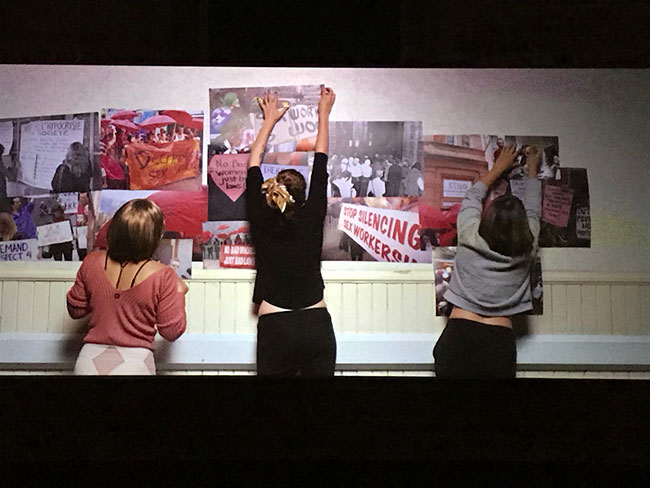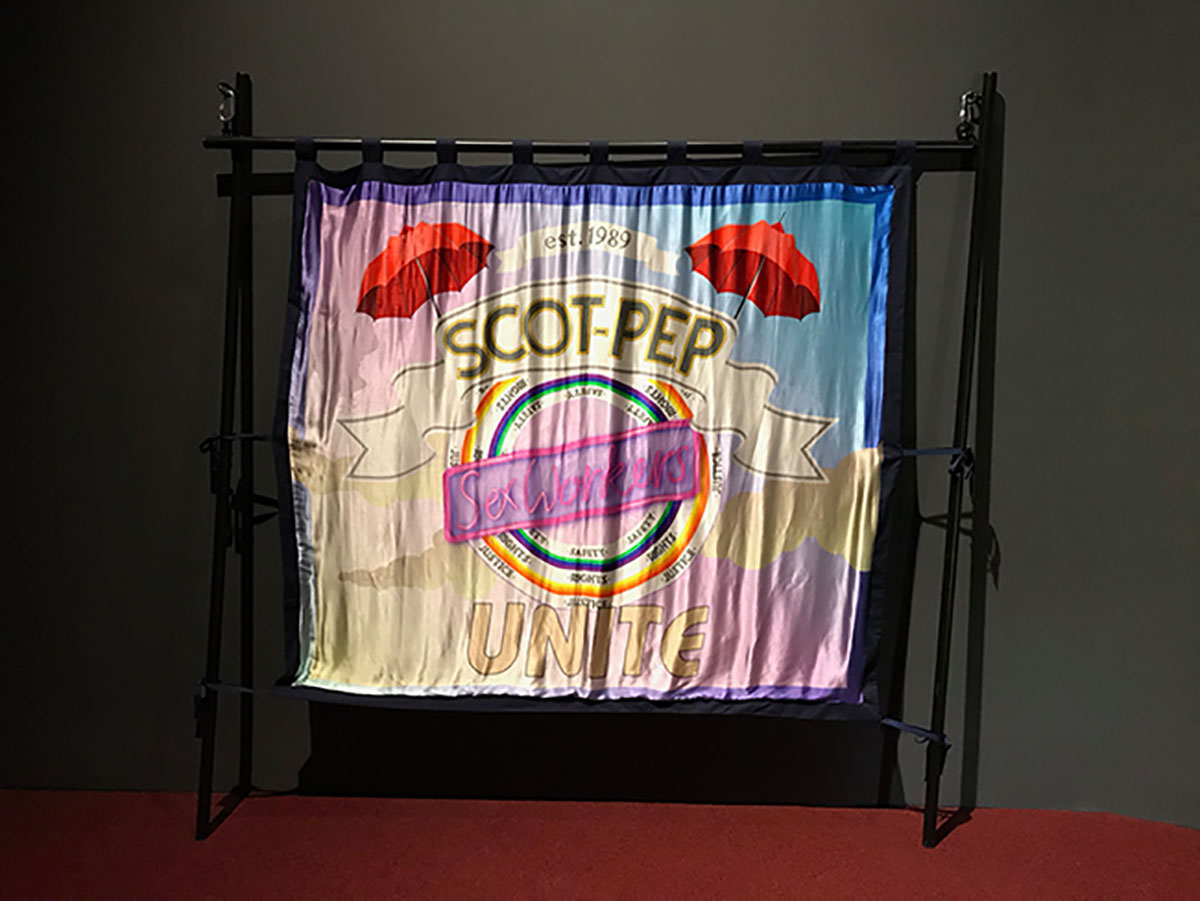

https://media.ed.ac.uk/media/1_rykqvh1g
I watched ‘Workers’ last week. It is a research project directed by Petra Bauer, in collaboration with the sex worker-led charity SCOT-PEP, and promoted by the Edinburgh-based arts organisation Collective. The narrative structure of this rough half-hour film festival is simple, as the camera follows the activities of three unnamed women throughout the day. Although I have seen similar short films before, this one took me into a different narrative structure. The author’s aim is not to talk about the legal, ethical or philosophical relationships of sex workers but to explore the aesthetic and political strategies employed by the project.
‘Workers!’ provides an exciting example of the culture of visual radicalism in contemporary art because the filmmakers negotiate politics through feminism. I was actually a little nervous when a group of sex workers were interviewed. The camera and the interview language created a sense of unease, as I hadn’t seen a similar film before. But I held back and managed to work through it.
I think the main reason why filmmakers, sex workers, and authors work well is that filmmakers are open to collective and collaborative approaches. This reminds me of being inspired by feminist film practitioners who emphasize making films with their subjects rather than about them. In addition, the film made me think about how their working relationship is described. It included: a long-term collaboration, an extended dialogue; reproductive, relational work; very collaborative. I realized they were working without hierarchy and non-authority conducting participatory interviews rather than sex.
I think there are two things I can take away from this. For one, filmmakers create ways of sharing experiences, for example, meetings, emails and events. This would make me curious about new ways of aesthetics. Secondly, I realised that artists maintain a distance between subjective and objective artistic practice for artists working in the field. As a self-observer and immersive experience, the artist can be practised as a semi-structured investigative work. Thus, ‘autoethnography’ in art studies usually focus on how artists develop their practices.

